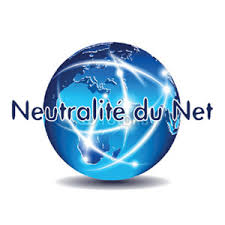Sept. 4, 2025
Thesaurus : Doctrine

► Full Reference: G. Loiseau, "L’intensité de l’obligation de vigilance selon les secteurs : le cas des opérateurs numériques" (The intensity of the Duty of Vigilance in different sectors: the case of digital operators), in M.-A. Frison-Roche (dir.), L'obligation de Compliance, Journal of Regulation & Compliance (JoRC) and Dalloz, coll. "Régulations & Compliance", 2024, forthcoming
____
📕read the general presentation of the book, L'obligation de Compliance, in which the contribution is published
____
► English summary of this contribution (done by the Journal of Regulation & Compliance - JoRC) : L'auteur développe le cas des opérateurs numériques. Il souligne le paradoxe d'un Droit qui est parti d'un texte qui a posé le principe de l'irresponsabilité des hébergeurs, en raison de leur neutralité technique, pour aboutir au DSA et leur imposer des diligences, mais il rappelle que cette obligation n'apparaît qu'à partir d'un signalement qui est porté auprès de l'opérateur numérique et une interdiction expresse d'une obligation générale de surveiller les informations. Moreover, there is no general duty of vigilance incumbent on digital operators, even if recent case law seems to be tightening the role imposed on hosting providers.
The Monumental Goal here is to fight against illegal content, but freedom of expression must also be preserved and regulations vary according to the type of content, whereas the DSA has a more general conception, aims at a logic of accountability and prevention of systemic risks. But wanting to make platforms 'accountable' ex ante, without touching the liability regime ex post, may pose a problem.
The duty of vigilance will vary depending on whether the digital operator plays a passive or active role. This may lead platforms to adopt prior measures that may constitute structural obligations, with the trusted third party taking the form of a trusted signaller. The platform is thus made responsible for its own vigilance, but despite the possibility of enhanced vigilance, this does not have to extend to investigative measures. There are, however, specific enhanced vigilance obligations for very large platforms, justified by the risks involved and the types of content (terrorism, pornography).
____
🦉This contribution est available in full text for persons following Professor Marie-Anne Frison-Roche teaching
________
Aug. 7, 2014
Blog
 The regulatory authority of the North American telecommunications (Federal Communications Commission - FCC) adopted a position 5 August 2014 to admit that the service providers charge users for the service of priority access to content. For some commentators, allowing this monetization, the FCC has "killed" the "net neutrality".
The regulatory authority of the North American telecommunications (Federal Communications Commission - FCC) adopted a position 5 August 2014 to admit that the service providers charge users for the service of priority access to content. For some commentators, allowing this monetization, the FCC has "killed" the "net neutrality".Immediately, President Barack Obama is strongly opposed to this position on behalf of the principle known as "net neutrality."
The Washington Post, in its presentation of this reaction of the President, described it as "populist".
Basically, it comes to choosing whether you prefer to favor companies that produce content and containing or to favor search engines. It is true that the search engines, whose business model relies heavily on the legal principle of "net neutrality" are American firms, like Google. On the other hand, many companies that carry the content and can therefore monetize the service of access to a priority basis are divided to more evenly around the world, including being located in Europe.